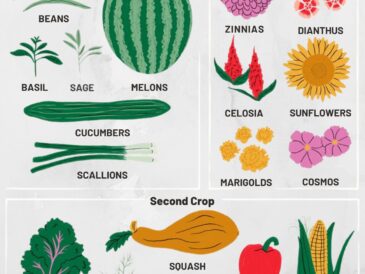Introduction
In today’s world, where health, nutrition, and environmental awareness shape our eating habits, zucchini has risen as a superstar vegetable that is both nutritious and versatile. Often relegated to a side dish, zucchini deserves far more recognition as a main ingredient capable of replacing meat in many meals without sacrificing flavor, texture, or satisfaction.
Who says you need meat to create a hearty and fulfilling meal? Zucchini proves that vegetables can be just as delicious, filling, and adaptable as protein-rich dishes. Whether spiralized into “zoodles,” roasted to caramelized perfection, stuffed with savory fillings, or blended into soups, zucchini is a low-calorie, vitamin-packed powerhouse that can take center stage in your kitchen.
This article explores why zucchini could become your new favorite food. We’ll dive deep into its nutritional benefits, cooking methods, and offer an incredibly detailed recipe featuring zucchini, potatoes, carrots, Suluguni cheese, eggs, and spring onions—a dish that is as nourishing as it is flavorful!
Part 1: Why Zucchini is a Superfood
1. Impressive Nutritional Profile
Zucchini is low in calories but rich in essential nutrients. Here’s what you get per 100 grams:
- Approximately 17 calories
- Dietary fiber, which supports digestion and promotes fullness
- Vitamins A, C, and K—crucial for eye health, immune function, and bone strength
- Important minerals such as potassium, magnesium, and manganese
- Antioxidants that help fight free radicals and reduce cellular aging
2. Hydrating and Light
Composed of over 90% water, zucchini hydrates your body while remaining incredibly light. It’s perfect for those who want to lose weight or maintain a balanced diet without feeling deprived.
3. Culinary Versatility
Zucchini can be eaten raw, grilled, sautéed, baked, spiralized, or even used in desserts. This flexibility makes it ideal for all sorts of cuisines and cooking styles.
4. An Eco-Friendly Meat Alternative
Choosing vegetables like zucchini over meat significantly reduces your environmental impact. Growing zucchini requires less water, space, and emits fewer greenhouse gases—making it a win-win for both health and the planet.
Part 2: The Ultimate Zucchini, Potato, Carrot, Suluguni, and Egg Dish
This recipe perfectly showcases zucchini as the star ingredient in a hearty, delicious vegetarian dish. Suluguni cheese, a traditional Georgian cheese, lends a creamy, slightly salty richness, perfectly balanced by the sweetness of zucchini, potatoes, and carrots.
Ingredients:
- 1 medium zucchini
- 2 potatoes
- 1 carrot
- 100g Suluguni cheese (or mozzarella/fresh cheese as substitute)
- Spring onions, chopped
- 2 eggs
- Salt and freshly ground black pepper
Step-by-step Instructions:
1. Prepare the Vegetables
- Wash the zucchini, potatoes, and carrot thoroughly.
- Peel the potatoes and carrot, but leave the zucchini skin on to preserve nutrients.
- Slice the zucchini into thin rounds.
- Slice the potatoes into similarly sized thin slices.
- Grate or julienne the carrot depending on your texture preference.
2. Cook the Vegetables
- Boil the potatoes and carrots in salted water until tender but firm (about 8–10 minutes). Drain well.
- In a non-stick pan, sauté the zucchini slices with a drizzle of olive oil until lightly golden. Season with salt and pepper.
3. Prepare Eggs and Cheese
- Beat the eggs with a pinch of salt and pepper in a bowl.
- Cut the Suluguni cheese into small cubes or crumble it roughly.
4. Assemble the Dish
- In a baking dish, layer potatoes, carrots, zucchini, and cheese alternately.
- Pour the beaten eggs evenly over the layered vegetables.
- Sprinkle the chopped spring onions on top.
5. Bake
- Preheat the oven to 180°C (350°F).
- Bake for 25–30 minutes until the egg is set and the top is golden brown.
- Let it rest for 5 minutes before serving.
Part 3: Why This Dish is Complete and Balanced
Protein and Calcium
Thanks to eggs and Suluguni cheese, this meal provides high-quality protein essential for muscle maintenance and satiety, along with calcium for strong bones.
Fiber and Vitamins
The vegetables deliver plenty of fiber, aiding digestion and providing essential vitamins that boost overall health.
Flavor Harmony
The sweetness of the carrot and zucchini is perfectly balanced by the salty cheese and fresh bite of spring onions. Freshly ground black pepper adds a warm kick.
Part 4: Variations and Customizations
- Spice it up: Add smoked paprika, curry powder, or dried herbs like oregano or thyme for different flavor profiles.
- Vegan version: Replace eggs with a chickpea flour batter and cheese with smoked tofu or plant-based cheese.
- Add crunch: Toss in nuts or seeds like cashews, pine nuts, or sunflower seeds for texture contrast.
- Mix in other veggies: Bell peppers, sun-dried tomatoes, or sautéed mushrooms can elevate the dish further.
Part 5: Why Incorporate Zucchini Into Your Daily Diet?
Easy to Add to Meals
Zucchini fits seamlessly into breakfasts, lunches, dinners, snacks, and even desserts. Its mild flavor and soft texture adapt to many recipes.
Budget-Friendly and Accessible
Zucchini is inexpensive, available year-round, and easy to grow in a garden or even a pot on a balcony.
Lower Environmental Impact
By choosing zucchini over meat more often, you help reduce your carbon footprint—an important contribution to fighting climate change.
Part 6: More Delicious Zucchini Recipes
1. Stuffed Zucchini Boats with Quinoa and Herbs
A wholesome, filling, and nutritious dish combining grains and vegetables for a balanced meal.
2. Zucchini Fritters
Crispy on the outside, tender inside — perfect as a side or main dish.
3. Chilled Zucchini and Mint Soup
A refreshing starter, ideal for hot days.
Part 7: Tips for Selecting, Storing, and Cooking Zucchini
Choosing the Best Zucchini
- Look for firm, glossy zucchini without soft spots or blemishes.
- Smaller zucchini tend to be sweeter and more tender.
Storing
- Keep zucchini in the vegetable drawer of your fridge, unwashed, and consume within 3-4 days.
- Washing before storing can cause spoilage.
Cooking Tips
- Avoid overcooking to prevent mushiness.
- Prefer quick high-heat cooking, steaming, or roasting for best texture and flavor.
Part 8: Science-Backed Health Benefits
Anti-Inflammatory and Antioxidant Effects
Zucchini contains flavonoids and carotenoids which reduce inflammation and protect against oxidative stress.
Heart Health
Potassium-rich zucchini helps regulate blood pressure and supports cardiovascular health.
Weight Management
Low-calorie and fiber-rich, zucchini helps curb appetite and promotes fullness.
Conclusion: Zucchini—More Than a Vegetable, A Health and Culinary Ally
Zucchini proves that delicious, varied, and satisfying meals don’t require meat. Its nutritional richness, culinary flexibility, and mild taste make it an indispensable ingredient for balanced diets.
Try the detailed recipe of zucchini with potatoes, carrots, Suluguni cheese, and eggs, and discover how vegetarian dishes can be hearty and comforting. Next time you crave meat, consider zucchini—it might just surprise you!
If you want, I can provide even more recipes, growing tips for zucchini, or ideas to increase vegetable intake. Just ask!




